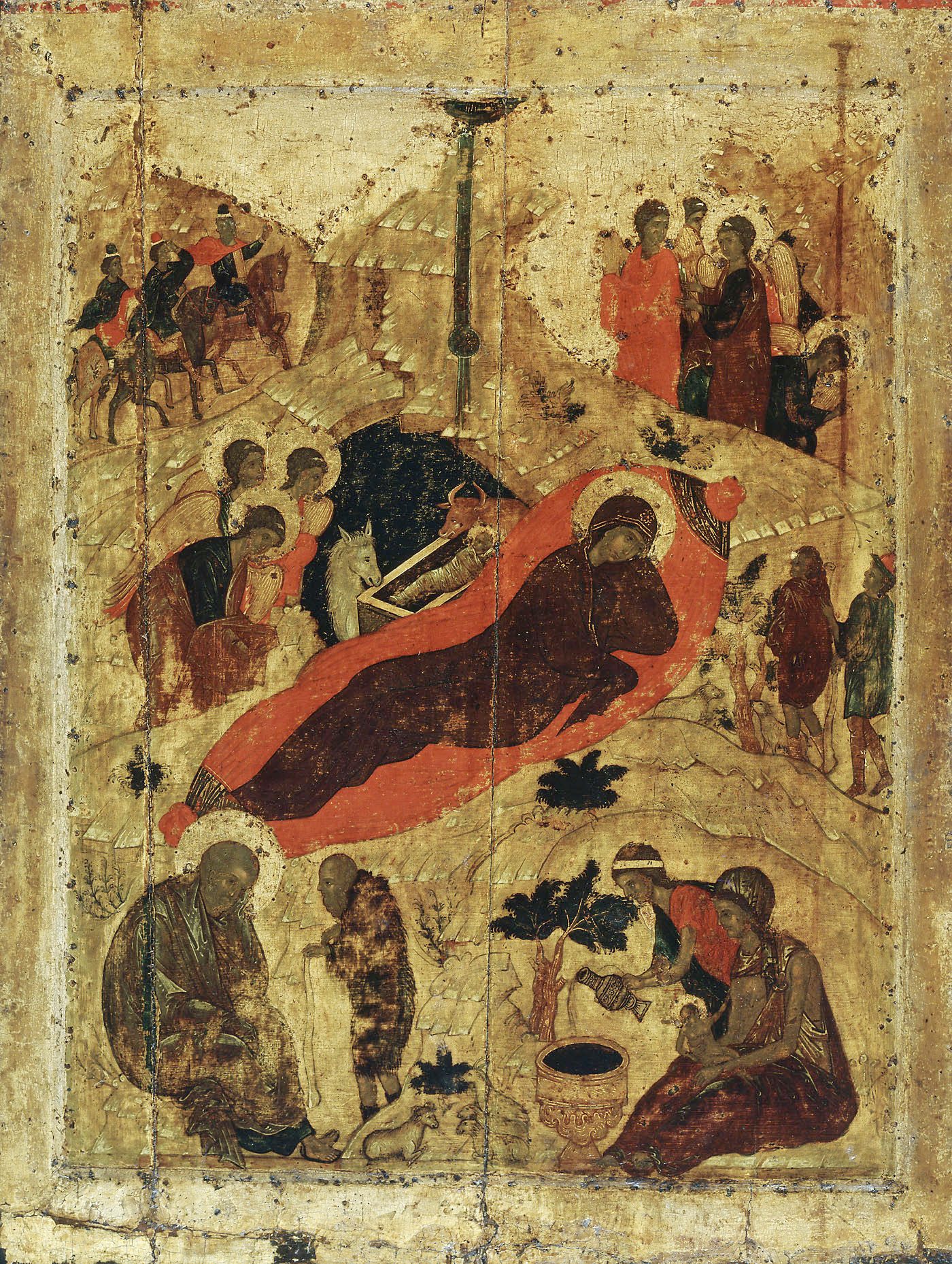Dr. Augustine Sokolovski, Priest

Christ by Andrei Rublev, 1405
Advent, or the Nativity Fast, is the time leading up to Christmas. On December 4th, if Christmas is celebrated on January 7th, according to the Julian calendar, special hymns are sung: “Christ is born, glorify him!”. As the Christmas Holiday approaches, many very special days approach.
The days before Christmas are called the Forefeast. The day before the Nativity of Christ is called “Christmas Eve”. It is about such a time that Nikolai Gogol writes in his story “Christmas Eve”. In a broad sense, the entire month of December is a month of the Christmas Celebration.
The Gospel texts bring us to the story of the birth of Jesus Christ into the world. In the Gospels of Matthew and Luke, the Nativity stories are preceded by a reading of Jesus’ genealogy. The very complicated listing of the names of the ancestors of Christ the Messiah signifies a symbolic indication of the extraordinary length of mankind’s path to God.
These great Biblical names, the names of the faithful who preceded Jesus in this world are read during the service on the eve of Christmas. These are many names such Abraham, Tamar, David, Ruth, Daniel… descending down to Joseph and Mary, the names of the great believers and witnesses of all times, read in the genealogy of the Lord in the Gospel on the eve of Christmas.
According to the Gospels the Divine covenant was established again with Jesus Christ. Jesus has become an absolute “Yes”, an “Amen” to all that God had been awaiting from mankind, to all that humans had been simply not able to fulfil.
Thus, The Nativity is the beginning of the New Testament, named after our Saviour and Redeemer Jesus Christ, who comes from Nazareth, but was born in Bethlehem and was crucified in Jerusalem.
In the time before Christmas, faith and unbelief meet. They meet to give way to the One who, through the mysterious gates of history, now enters into the history of the world in order to receive his own biography. In Jesus Christ God was given a human biography. In this biography of God, named Jesus, the biography of mankind, the biographies of all people are already included. God became biography, in order to be with his people forever.
Our great and glorious Lord Jesus enters into history. This Event – which is actually Advent – that once took place in history, is considered by us not through retrospection or nostalgic memory, but as an eternally current divine “Yes and Amen.”
The Christmas Event is not, or not only, about the past, but about the future. It turns out that what happened and took place two thousand years ago in history, we see not with the eyes of the flesh, but with the eyes of the words of the Bible. Paul says that the Nativity event is revealed to us in the light of the Resurrection (cf. 2 Cor. 5,16).
This incomparable Event of Advent that took place once in history gives us the chance to participate in the immortality of the Eternal Christ by faith. The very meaning of the reading of the whole genealogy of Jesus on Christmas Eve is that from now on our names are also added to the eternal Biblical genealogy, which in fact became His own.
In the Christmas Event God became a contemporary of us all, he became our contemporary. Christmas means our communion with the Divine Nature, according to the Scriptures, from which the Church of Jesus Christ lives (2 Pet. 1: 4).




